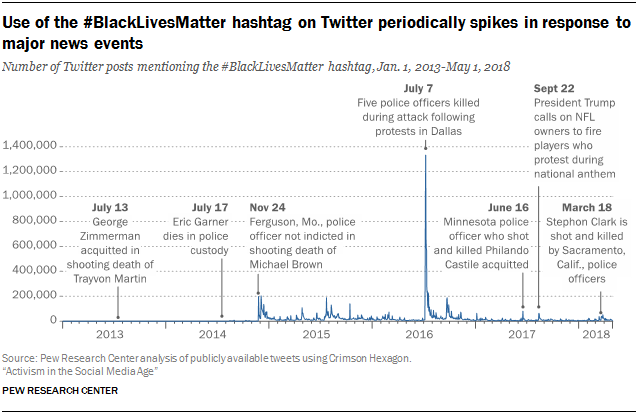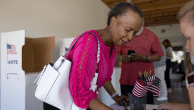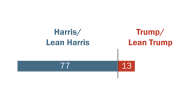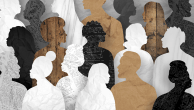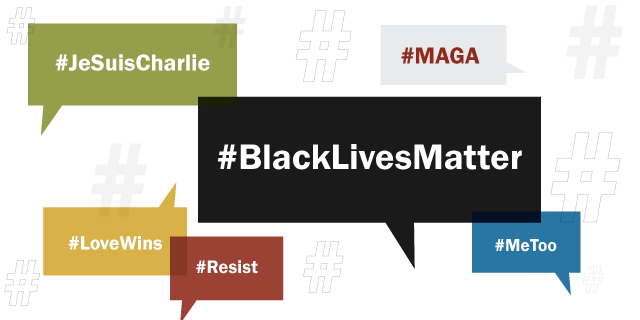
This month marks the fifth anniversary of the #BlackLivesMatter hashtag, which was first coined following the acquittal of George Zimmerman in the shooting death of unarmed black teenager Trayvon Martin. In the course of those five years, #BlackLivesMatter has become an archetypal example of modern protests and political engagement on social media: A new Pew Research Center analysis of public tweets finds the hashtag has been used nearly 30 million times on Twitter – an average of 17,002 times per day – as of May 1, 2018.
The conversations surrounding this hashtag often center on issues related to race, violence and law enforcement, and its usage periodically surges surrounding real-world events – most prominently, during the police-related deaths of Alton Sterling and Philando Castile and the subsequent shooting of police officers in Dallas, Texas, and Baton Rouge, Louisiana, in July 2016.1
The rise of the #BlackLivesMatter hashtag – along with others like #MeToo and #MAGA (Make America Great Again) – has sparked a broader discussion about the effectiveness and viability of using social media for political engagement and social activism. To that end, a new survey by the Center finds that majorities of Americans do believe these sites are very or somewhat important for accomplishing a range of political goals, such as getting politicians to pay attention to issues (69% of Americans feel these platforms are important for this purpose) or creating sustained movements for social change (67%).
Certain groups of social media users – most notably, those who are black or Hispanic – view these platforms as an especially important tool for their own political engagement. For example, roughly half of black social media users say these platforms are at least somewhat personally important to them as a venue for expressing their political views or for getting involved with issues that are important to them. Those shares fall to around a third among white social media users.2
At the same time, the public as a whole expresses mixed views about the potential broader impact these sites might be having on political discourse and the nature of political activism. Some 64% of Americans feel that the statement “social media help give a voice to underrepresented groups” describes these sites very or somewhat well. But a larger share say social networking sites distract people from issues that are truly important (77% feel this way), and 71% agree with the assertion that “social media makes people believe they’re making a difference when they really aren’t.” Blacks and whites alike offer somewhat mixed assessments of the benefits and costs of activism on social media. But larger majorities of black Americans say these sites promote important issues or give voice to underrepresented groups, while smaller shares of blacks feel that political engagement on social media produces significant downsides in the form of a distracted public or “slacktivism.”
These are some of the key findings of Pew Research Center’s analysis of publicly available tweets using Crimson Hexagon and data acquired through Gnip, as well as an accompanying survey of 4,594 U.S. adults conducted May 29-June 11, 2018.
